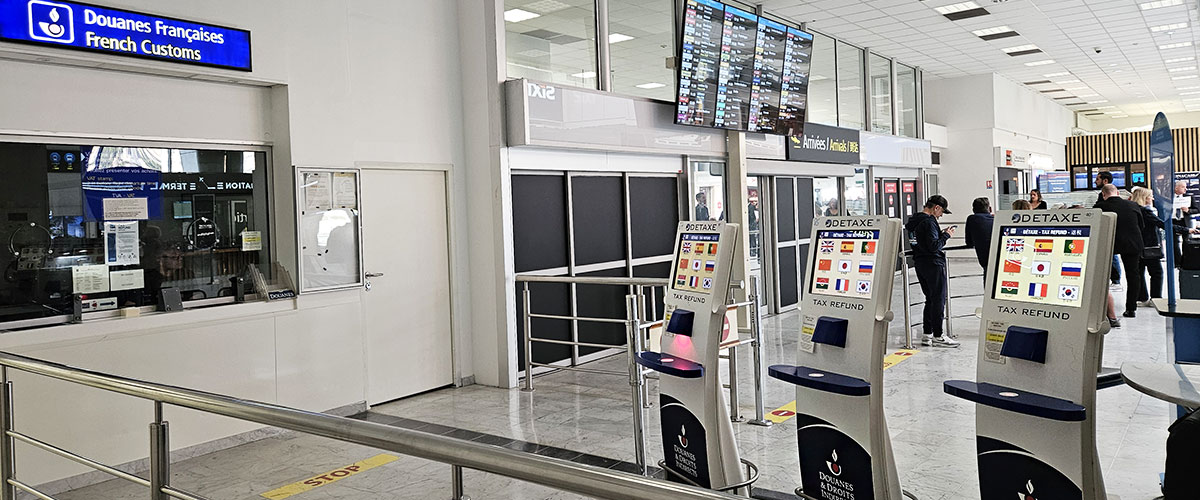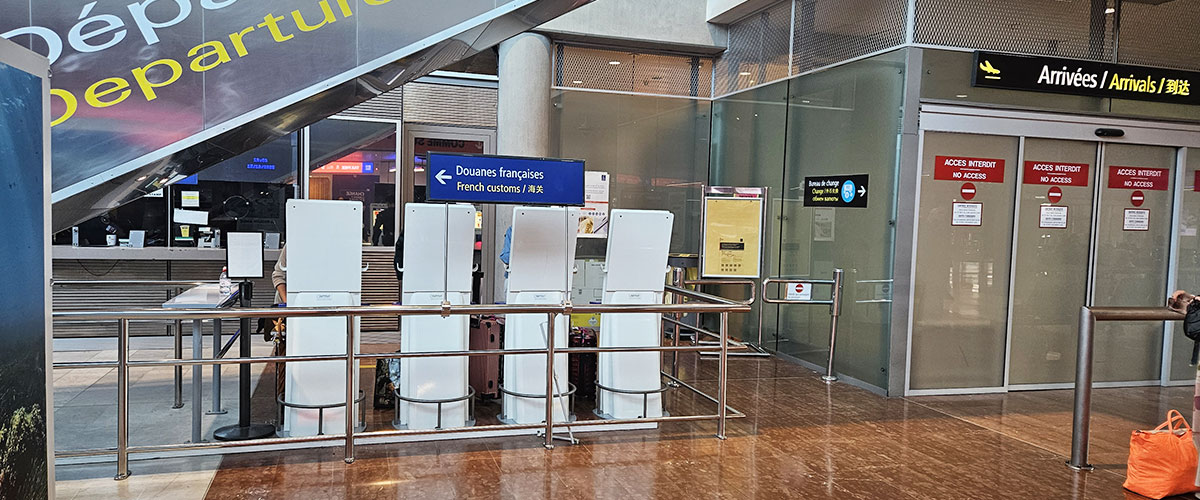Customs declaration and tax refund
For travellers whose usual place of residence is outside the European Community, value added tax (VAT) can be deducted from the price of goods purchased in France. Tax-free goods are those that you carry in your personal luggage.
⚠️ Important: validate your tax refund forms BEFORE going through security.
Many passengers go directly to the boarding area without having validated their tax refund forms. However, this validation is mandatory and must be done before going through the Security Checkpoint.
Without validation by customs or via a PABLO terminal, no refunds can be made at Global Exchange, located in the restricted area.
Once you have passed through security, you are not allowed to turn back.
Therefore, please ensure that you complete this process before entering the restricted area.
Tax refund kiosk
Passenger service : self-service tax refund kiosks at Nice Côte d’Azur Airport
Aéroports de la Côte d’Azur and the French Customs Authority have set up a self-service tax refund service for passengers.
This service, called PABLO (Programme d’Apurement des Bordereaux de Détaxe par Lecture Optique), is available in all airport terminals.
Before going through the security check and heading to boarding, you must have your tax refund forms validated by the French Customs office, either at the counters or using one of the self-service kiosks located:
Terminal 1
In the arrivals hall, near the Customs office, opposite the Information Desk.
Terminal 2
In the arrivals hall, near the Customs office, opposite gate A3.
Passengers who have tax refund forms with a barcode and the PABLO logo can scan them directly at these terminals.
More info on self-service tax refund kiosks here.

